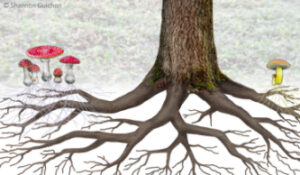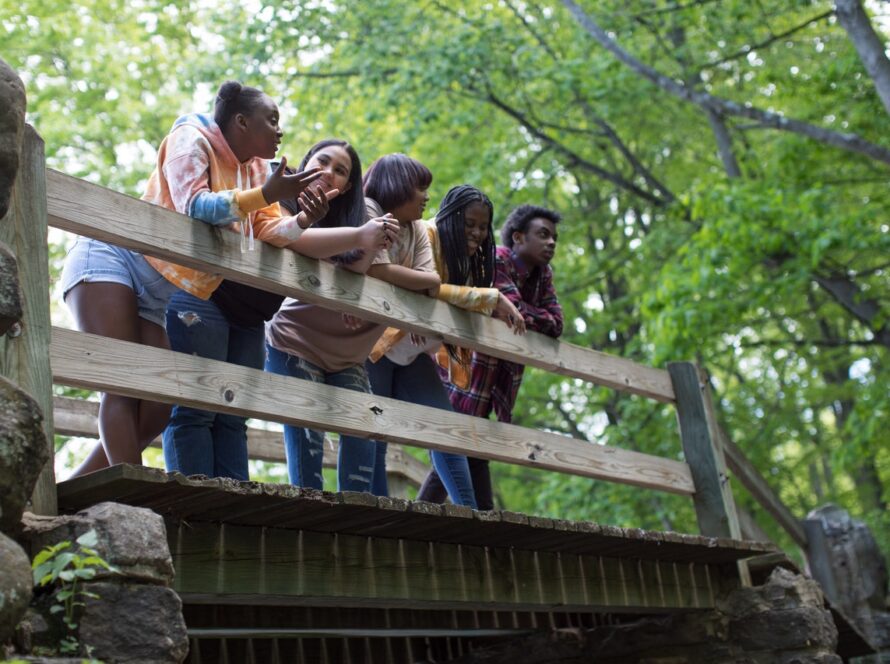Lesson 20 –
Psalm 1 NRSV
1 Happy are those
who do not follow the advice of the wicked,
or take the path that sinners tread,
or sit in the seat of scoffers;
2 but their delight is in the law of the Lord,
and on his law they meditate day and night.
3 They are like trees
planted by streams of water,
which yield their fruit in its season,
and their leaves do not wither.
In all that they do, they prosper.
4 The wicked are not so,
but are like chaff that the wind drives away.
5 Therefore the wicked will not stand in the judgment,
nor sinners in the congregation of the righteous;
6 for the Lord watches over the way of the righteous,
but the way of the wicked will perish.
Background
This chapter is the beginning of the collection of Psalms! Because the book of Psalms is full of a wide range of human emotions and reactions, it is significant that the collection starts out like this. The first Psalm helps us focus on divine wisdom. In your own devotional period, imagine some other ways you might have opened up this book of writings. A letter? A song? A warning? A story?
Today’s lesson will focus on integrity and consequences.
Read the scripture out loud together.
What’s happening during this passage?
The psalmist imagines two different paths. One is for those who ignore the “advice of the wicked.” These are the happy people. They do not take the “path that sinners tread” or do what the scornful do. They find their joy in the wisdom of the Lord and think on the guidance of the Word. Like trees by the river bank, they do not sway. They instead produce fruit when it is time. They will always be okay.
But the wicked are contrasted with this first group. The wicked are easily blown about by the wind. They do not have the grounding or the roots to stand in judgement. The Lord observes the ways of those who seek justice, but those who focus on wickedness will not prosper.
Does integrity always make you happy?
Doesn’t it feel like people who make evil choices seem to be doing great? After all, we have all seen people prosper after they’ve treated us poorly. We have watched villains get away with great offenses. Remember when Felicity Huffman and Lori Loughlin engaged in an illegal scheme to pay their children’s way into college? And they suffered very few consequences? Doesn’t it burn your toast to know that our former president was able to lie and manipulate government resources for personal gain? Isn’t it annoying when someone you can’t stand wins?
It would be easy to comprehend if good people won and bad people lost. Many of us would be able to sleep at night if our enemies “got what was coming to them.” For the psalmist, the benefit of being close to God’s wisdom is nourishment, life, prosperity. Those who follow God’s wisdom are like trees that produce fruit, are rooted, and planted. How does this align with what you’ve experienced in your own life?
What are the consequences of “meditating on the law?”
Psalms are a communal text. They can be sung and recited. They are the hymns of the people. We often talk about the Torah as “the law,” but according to Rev. Yolanda Norton, professor at San Francisco Theological Seminary argues that the word might be better understood as “instruction or guidance.” The Torah is guidance for “God’s creation about how best to live both individually and communally.”
But God does not reward those who are like us and punish those who are unlike us. In this text, the righteous and the wicked are contrasted by their commitment to community. The righteous are planted and grounded, while the wicked are never accountable. They don’t feel guilt when they do wrong because they never have to answer for their consequences. By the time someone holds them accountable, they have floated on to the next victim. We may see people do evil in the world and wonder, “have you no shame?” And they don’t! They do not feel guilty about doing wrong because they do not understand how their actions impact others.
Meditating on the law is something we do together. It keeps us accountable to each other. We study the word, sing the word, discuss and debate together because we are inadequate on our own. We “maintain family and secret devotions” (as we say in our church covenant) because doing so keeps us thinking on how to treat each other better.
What questions do you still have of this scripture? How will you commit to journeying with this text this week?
 Connection to Today’s World
Connection to Today’s World
Fungus are not always pretty to look at, but they keep our ecosystem strong! Mycelium is a kind of fungus that expands in the ground. It is responsible for a communication network rivaling Verizon FiOS! When a tree is cut down or sick, the fungus communicates with other trees. The trees respond by sending water and other nutrients through the soil. There are sophisticated networks organized between these organisms. Such networks keep nature healthy. Even nature communicates needs and responds with support!
Journal: Can you think of a time when you had to make a tough call to do the right thing? What happened? Who supported you in that decision?
Closing: Listen to “We Shall Not Be moved,” sung by Mavis Staples.
We shall not, we shall not be moved
We shall not, we shall not be moved
Just like a tree that’s standing by the water
We shall not be moved
We shall not, we shall not be moved
We shall not, we shall not be moved
We’re fighting for our freedom
We shall not be moved
We shall not, we shall not be moved
We shall not, we shall not be moved
We’re fighting for our children
We shall not be moved
Prayer:
Dear God,
You have given us the gift of community. We gather in this space to talk about the wisdom of your word and its application in our lives. We cannot grow deeper without each other.
We have a great need for communication and wisdom. We are deeply connected to each other. We have to remember your desires for us; community, wellness, joy.
When we refuse community, surround us with good people. When we are not well, dispatch your healing. When we are far from joy, help us to see the beauty right besides us.
In Jesus’ name we pray, Amen.





